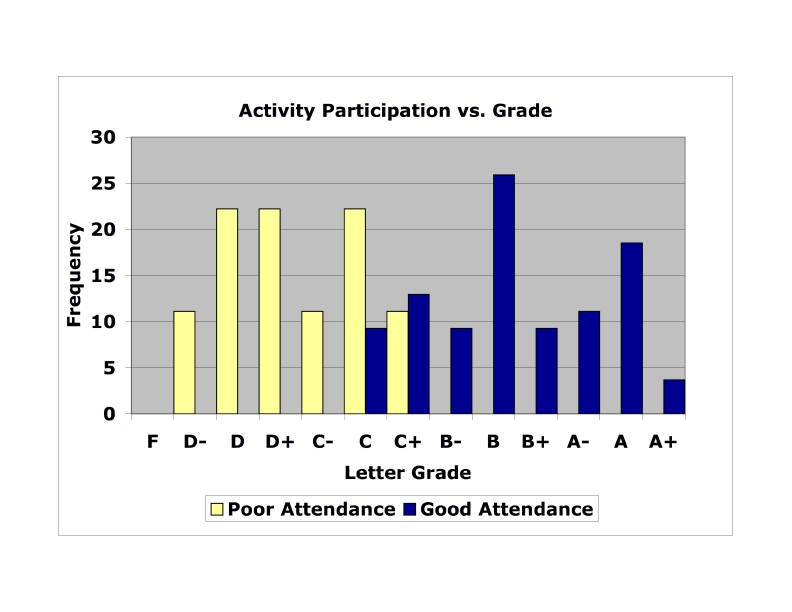|
Do I need to purchase the class textbook? Your education is an investment in your future, so you should make sure that you have access to all of the resources required to do the best you can. With that in mind, you should purchase the class textbook and complete the readings before lecture to be prepared for what we cover in class. To help keep costs down, you can purchase a used or unbound copy of the text. I also will provide information on the readings from the two most recent copies of the text we are using. There are also several copies of the textbook on reserve at the main library. They are available for overnight and 2 hour use. You may also be able to obtain a used copy of the text for less than the new price of the current edition by going through a web-based textbook buying service. Do you take attendance, and if not, how important is it to come to class, anyway? I don't take attendance. However, I base the exams on the material I cover in class and the reading from the text. I am an active researcher in the field of Oceanography and bring authentic experience in the field into the classroom setting. If you complete the readings and come to class, you will benefit from my explanation of the material in the text. I also include discussion of additional material not found directly in the text which helps place the material from the text in context. A portion of your grade - the in class activities - explicitly requires class attendance. I have also found that students who attend class regularly (that is miss less than a few class sessions) and participate in the in-class activities do significantly better on the midterms and final exam than their peers who do not. You can see this is the histogram of grades below:
I have seen a pattern similar to this
each time I have taught the class. Some students may fit outside of this
distribution, but it holds true in a statistical sense. Skipping class
and avoiding the reading gambling with your tuition investment. No, it isn't. Oceanography is a comprehensive, applied science that incorporates approaches from the basic physical and social sciences including: Physics, Biology, Chemistry, Geology, and Resource Management. This was the type of training that I received as a doctoral student in Oceanography at the College of Oceanic and Atmospheric Sciences at Oregon State University, one of the largest oceanographic institutions in the nation. This class deals with all aspects of the oceans, including marine biology. Only a small part of the course will be about animals and plants in the oceans. Other topics, including waves, tides, ocean circulation, climate-ocean links, sea-floor spreading, coasts, and volcanoes are included in oceanography. I am not a "science" person and I'm concerned about having to take a Kent CORE science course. Is this the right class for me?It sure is! You'll live your whole life on Earth and the ocean is an important part of how the planet works! Approach the class with an open mind and you will find that you'll take away a perspective that will help you to better appreciate the world around you. I am always willing to work with students or groups in office hours or to answer questions about the material during class so feel free to ask questions. There is so much material-how can I tell what is important? Use the outline I give during each lecture as a guide to what is important. Consider how the topics fit together and focus on understanding the underlying principles. What are the review sessions like? Review sessions are question and answer style. I begin each session with a brief reminder of what material the exam will be covering, and how best to approach and organize the material to study it efficiently. Then I take questions on anything about the material, and answer it. This has proved to be a very efficient method-and all of us learn something-I learn what areas are particularly problematic, and I have the opportunity to improve everyone's understanding before the exam. If a teacher shows a video is shown in a class, I usually leave. I figure, its not important, right? It is important! I sometimes use them to help illustrate an important parts of the lecture. Therefore, material on them is part of the class material that is used in the exams. Videos may be shown during the semester that cover certain topics best seen in film footage. I always introduce the subject matter, summarize the important points after it is shown, and answer any questions about it. Videos are not commercials! They are part of the course. I am just taking this course because it is a Kent Core class that fits my schedule-why should I bother to spend time on this, anyway? Kent State has recently revised its Core curriculum to greatly enhance your educational experience here at Kent State. College provides you with an chance to explore knowledge in a way that you may never have again once you graduate. Many of you have not found your major yet and may discover it in a Core class. Each Core class can help you view the world from a different perspective which can help you to become a more well-rounded citizen or better in your chosen field. Think of a world in which everyone had the same abilities and knowledge base? How would be accomplish anything? Don't be afraid to expand your abilities and horizons. Core classes are a great chance to pick up information you wouldn't get from the courses in your major alone. |
